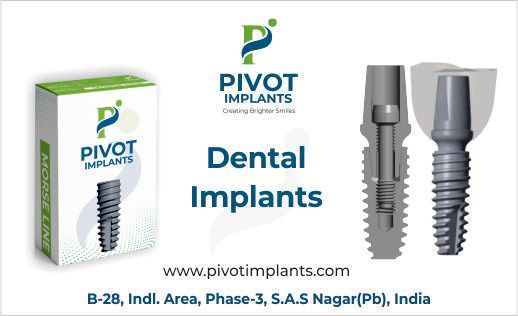How to Reduce Pain After Dental Implants?
If you have
ever had dental implants
before, you would know just how efficient they are at replacing your natural
teeth. After the implant surgery,
you can expect a perfect smile to stay naturally on your face. The recovery
from dental implant
surgery is short and has minimal risks of infection. However, while it
is a short recovery process, it does involve inserting a metal implant into
your jawbone. This can cause quite a bit of pain for some time. If you are
experiencing pain after dental implants, here are some tips to help you counter
that pain:
 |
| Add caption |
Use
Prescribed Painkillers
When
experiencing pain after your dental implant surgery, your first step should be
to take the medicines that have been prescribed by your dentist. These
medicines are most likely to affect your gums and jawbone directly without
causing many side-effects. Just be sure to tell your dentist an honest record
of your medical history so they can prescribe pain killers that will not interfere
with any conditions you may have.
Eat Soft
Foods or a Take Liquid Diet
It is
essential that you allow your jawbone some time to heal after the implant
surgery. A great way to do this is to stick to consuming soft foods or a liquid
diet. Chewy, hard, and sticky foods are bound to cause a lot of pain and they
could also cause damage to your healing jawbone. It may not be an ideal diet,
however it will only last for a few days after which you can enjoy your
favorite meals again.
Apply an
Ice Pack
In order to
reduce pain of the implant
surgery, you can also apply an ice pack or any bag of frozen foods.
This will help to reduce any swelling from the surgery, and also make the area
numb to the pain. Be sure to apply the ice pack for 20 minutes at max since
beyond this time, it can harm your skin. You give a 20 minutes break after
using the ice pack, and then apply another one for 20 minutes if needed.
Soak Your
Mouth in Baking Soda
Mix baking
soda and warm water to make a soothing mixture. Soaking your mouth in this can
help you to reduce the pain as well as the swelling from the surgery. Apart
from this, it can even help in speeding up your healing process by reducing the
amounts of bacteria lingering in your mouth. This method can also be used for
other problems such as oral sores and infections.
If your pain
stays despite this, you can give it a few days to heal. However, if you feel
excruciating pain even after the expected healing period, its time to speak
with your dentist and discuss the possibility of an infection or other
condition.
Stay
connected with us for more information on dental implants

No comments:
Post a Comment